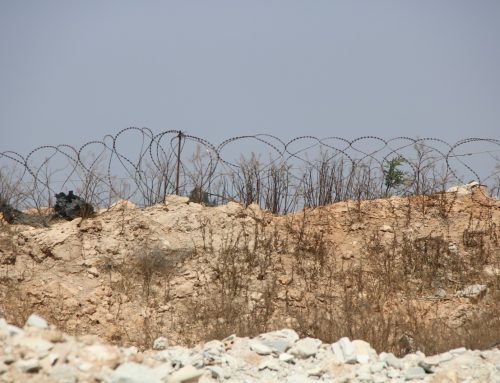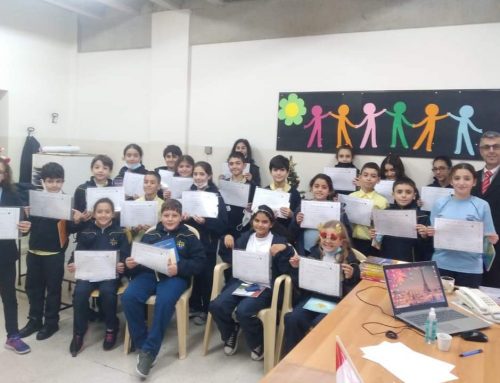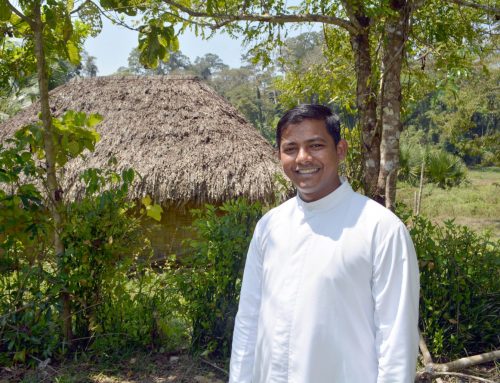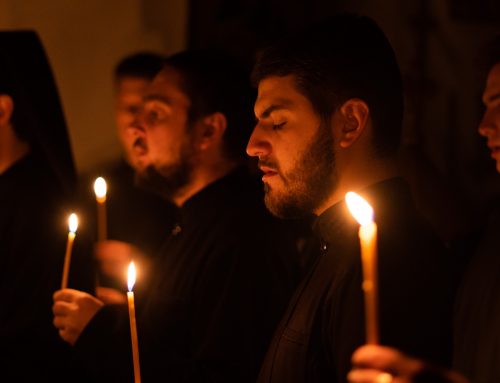Central African Republic 08 Apr.2015
Easter is the feast of love, which conquers hate and death. And yet: it is difficult to love your enemy. It is commonly believed that offering love to the same person who is responsible for loved ones being wiped out or the loss of the roof over your head is practically impossible. However, more and more people are rising above themselves.
By Eva-Maria Kolmann
He was almost lynched by the angry mob. Missionary Aurelio Gazzera said the rosary as rocks pelted his car and furious people pointed weapons at him. The priest had brought the wrath of a number of Muslims down upon himself by supporting the withdrawal of the Séléka insurgents; some of the Muslims felt that they had been left completely open to acts of revenge from the rest of the population. However, as he was now being attacked by the mob, two Muslims stepped in front of him and saved his life. One of them was an insurgent who was notoriously known as being one of the most brutal of men. In the past he had complained that Father Aurelio was publicly denouncing the crimes of the Séléka. He had threatened to kill him himself. Now he was saving the missionary from death.
The 52-year-old Italian Carmelite priest took the Gospels literally: “Do good to those who hate you!” Immediately after this incident, he began to head out several times a day with a few volunteers from his parish to visit those Muslims who had barricaded themselves in close quarters to save themselves from acts of revenge. He provided them with drinking water, rice and medicine that he paid for out of his own pocket, but his main incentive was to give them comfort, the missionary said. And then added, “These were the same people who had threatened me and broken the windows of my car with rocks. Now they were nothing more than frightened children, women and men who were in need.”
As time went on, Father Aurelio eventually managed to soften the hearts of his parishioners as well. After most of the Muslims were evacuated by convoy in February of 2014, there were only about two hundred of them left in the city of Bozoum. Most of these were women and children. They still need help today. At first, the priest only cautiously ventured to ask the people to bring money and provisions to the church to help the Muslims. He explained, “I did not insist too strongly because I know that the wounds are still fresh. Many have lost family members, others have relatives who were tortured, several were robbed and all of them had to stay away from their homes for weeks at a time, and all because of the Séléka and a few Muslims.”
However, in the end Father Aurelio was overwhelmed by their generosity. “Normally, the parishioners contribute a few provisions for the orphans and a little money, about 15 to 20 euro, to the collection for the poor that we hold once a month. On that Sunday, I was profoundly touched by my Christians. They brought a very large amount of food and collected more than 70 euro!” This is a lot of money for an extremely poor country. Deeply moved, he added, “The parishioners found it in themselves to do a lot more for yesterday’s enemy than they usually do for their brothers and sisters, the poor of the parish.”
An important role model for Father Aurelio is Father Werenfried van Straaten, the founder of Aid to the Church in Need, who became legendary as the “Bacon Priest”. Father Aurelio had already read his book Where God Cries while he was still in school. Since then, he has had the opportunity to visit his grave in Königstein im Taunus. Now, after many years, the missionary has reread the book by Father Werenfried. He said:
“I discovered many interesting items in the book that also apply to our situation here! After the Second World War, Father Werenfried initiated an extraordinary charitable effort: he asked the Dutch to help the Germans! After the war, Germany was destroyed in every respect. And the resentment harboured against the Germans was very strong. However, Father Werenfried had the courage and daring to ask those people who had almost lost everything because of the Germans to help the German refugees who had lost everything!” History is now repeating itself in the faraway Central African Republic.
Today, in the aftermath of the dark times of war, Father Aurelio often ponders the question: “As priest and missionary, what can I do in this situation? What can the church do?” And he has come to the conclusion: “We can do so much, really so much! It is now more necessary than ever to rebuild the hearts and the conscience of the people.” He then talked about how much there is to do: houses were destroyed, hundreds of thousands of people have fled, the destitution is inconceivable. However, the most important work is “to comfort, to encourage and to promote awareness of the mistakes, the evil and the sin.” And he added, “This type of crisis is an appeal that affects us deeply and that encourages us to follow the example set by Jesus, His Gospel and His life more closely. He is the one who gives strength and courage. He opens up the paths of light and hope. As Father Werenfried used to say: Place your trust in people! Because people are better than we think. However, not only people, but also God is better than we think…”
In the Central African Republic, Aid to the Church in Need supports the training of prospective priests and religious who will be the peacemakers of the future. In addition, the charitable organisation is helping to rebuild and supports the work of the church in a country that is one of the poorest in the world.
Eva-Maria Kolmann, press@acn-intl.org





